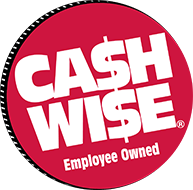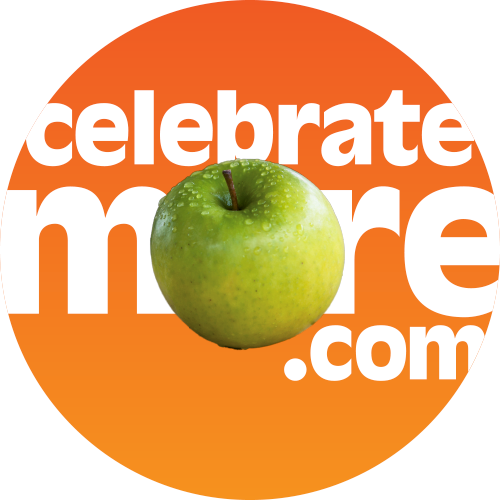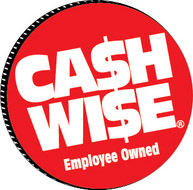So you want to become a vegetarian?
Great, no problem! Before you make the decision to go vegetarian it’s important to get a few facts first.
#1 it is not necessary to be vegetarian in order to eat healthy.
Of course I encourage all the fruits and vegetables you can possibly squeeze into a day, but remember all foods and all food categories do fit into a healthy meal plan. However if you choose to be vegetarian I am more than willing to help you meet that goal! There are a variety of reasons that people choose to become vegetarian it could be personal ethics, religion, or just the belief that it is a healthier eating plan.
Many people make the switch to a vegetarian diet because of the potential health benefits. Vegetarian eating patterns have been associated with improved health outcomes including lower levels of obesity, a reduced risk of heart disease and lower blood pressure. Also, vegetarians tend to consume a lower proportion of calories from fat and fewer overall calories, and more fiber, potassium and vitamin C than non-vegetarians. These characteristics, plus lifestyle factors, may contribute to the health benefits among vegetarians.
#2 Make sure you still are getting nutrients you need.
There are some nutrients you need to make sure you are getting enough of as they are found in more meat products, fish, dairy products and eggs. Some vegetarians do include dairy products, fish and eggs, but not all, as in the case with vegans, who consume no animal products at all. These foods include Zinc, Vitamin B12, Vitamin D, Iron, and protein. In contrast to that vegetarians tend to take in more fiber and antioxidants.
#3 Have a balanced diet.
Know how to still have a balanced diet, and know what foods have which nutrients to ensure that you are getting adequate nutrition.
There are many types of vegetarians. Some eat fish. Some eat dairy foods, such as cheese and/or eggs. Others abstain entirely from any food product that comes from an animal.
A lacto-ovo vegetarian, for example, consumes milk and dairy foods, eggs, grains, fruits, vegetables, beans, nuts and seeds, but abstains from meat, fish and poultry. A lacto-vegetarian follows a similar diet, but does not eat eggs. Meanwhile, a vegan stays away from animal-based products entirely, which, in addition to meat, also includes milk and dairy products, lard, gelatin and foods with ingredients from animal sources. Some vegans also do not eat honey.
Here are the nutrients to be especially aware that you are consuming enough of no matter the diet you are deciding to follow:
Calcium
Vegetarians should consume a variety of calcium sources in order to meet daily requirements.
Dairy products are a rich source of calcium. If dairy products are not included in your diet, calcium can be obtained from some plant-based foods, but the amount of calcium that the body can absorb varies. Here is a list of vegetarian-friendly sources of calcium:
- Low-fat or fat-free milk, yogurt and cheese
- Fortified soy milk or rice milk
- Fortified ready-to-eat cereals
- Calcium-fortified juice
- Calcium-set tofu
- Some leafy green vegetables
- Broccoli
- Beans
- Almonds and almond butter
- Soybeans
Iron
Vegetarians should consume a variety of iron sources to meet daily requirements. Consuming a good source of vitamin C (citrus fruits, orange juice, tomatoes) at each meal increases iron absorption.
Sources include:
- Fortified breakfast cereals
- Soybeans
- Some dark green, leafy greens
- Beans
- Eggs
Protein
 Protein is found in most plant foods as well as animal foods. Your body will make its own complete protein if a variety of foods and enough calories are eaten during the day.
Protein is found in most plant foods as well as animal foods. Your body will make its own complete protein if a variety of foods and enough calories are eaten during the day.
Vegetarian sources of protein include:
- Beans
- Whole grains
- Soy products
- Nuts and nut butters
- Dairy products
- Eggs
Vitamin B12
B12 is found in all foods of animal origin, including eggs and dairy products. An adequate intake of vitamin B12 is generally not a concern for vegetarians who eat some dairy products or eggs. Strict vegetarians or vegans, however, may need to supplement their diet by choosing a fortified breakfast cereal or by taking a vitamin B12 (cobalamin) supplement.
Vegetarian sources of B12 include:
- Vitamin B12-fortified foods including nutritional yeast, soy milk, meat analogs and ready-to-eat cereals (Be sure to check the label.)
- Dairy products
- Eggs
Vitamin D
Few foods are naturally high in vitamin D, but many dairy products are fortified with vitamin D in the United States. People who choose not to eat dairy products and who do not receive exposure to sunlight on a regular basis should discuss the need to take a vitamin D supplement with their health care provider.
Vegetarian sources of vitamin D include:
- Eggs
- Vitamin D-fortified soy milk, cow’s milk, orange juice and ready-to-eat cereals
Check out these two menu options for adults and older children who want to follow healthy vegetarian eating patterns includes breakfast, lunch, dinner and healthy snacks. The first features a sample meal plan day for a Lacto-ovo Vegetarian and the second is a sample meal plan day for a Vegan lifestyle. As always, be sure to contact an RD or your doctor prior to starting any diet to be sure it is a suitable fit for you. Happy meal planning!
Sample 1-Day Lacto-ovo Vegetarian Menu:
Sample 1-Day Vegan Menu:
Now you should have all the basic facts to becoming vegetarian. If you have any questions don’t hesitate to contact me!
Peace and Wellness,
Ashley
Information provided by Vegetarian Nutrition, a dietetic practice group of the Academy of Nutrition and Dietetics.












